Contractor Comment: Lots of plans but not enough staff
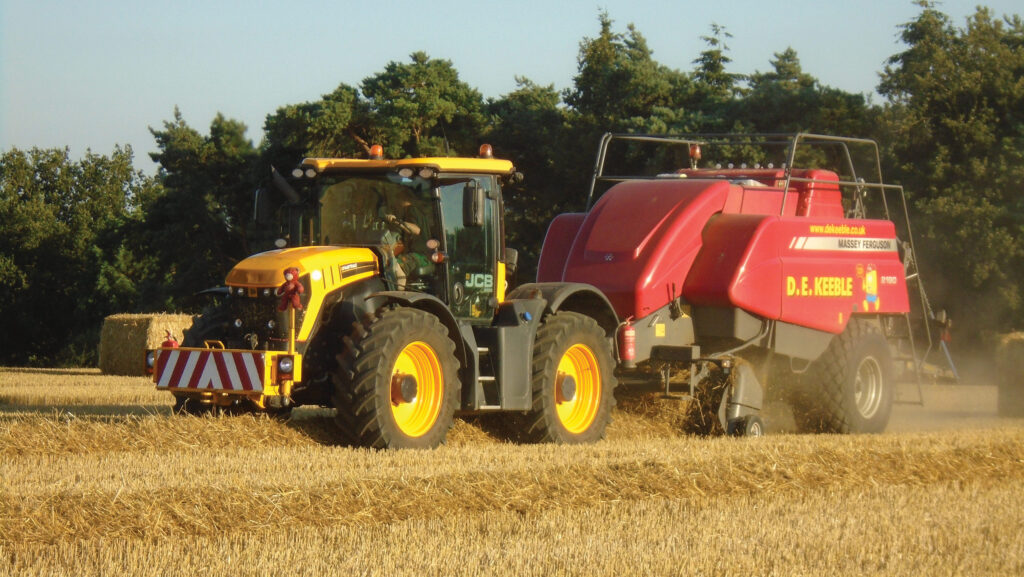 © James Andrews
© James Andrews The final members of our 2024 Contractor Comment cohort are Suffolk-based Derek and Linda Keeble.
See also: Contractor Comment: Infuriating weather sees new kit sit idle
About the contractor
Straw is the core of Derek and Linda Keeble’s Suffolk-based contracting business, with 25,000t baled each year for a range of outlets including power stations, livestock and covering overwintered vegetables.
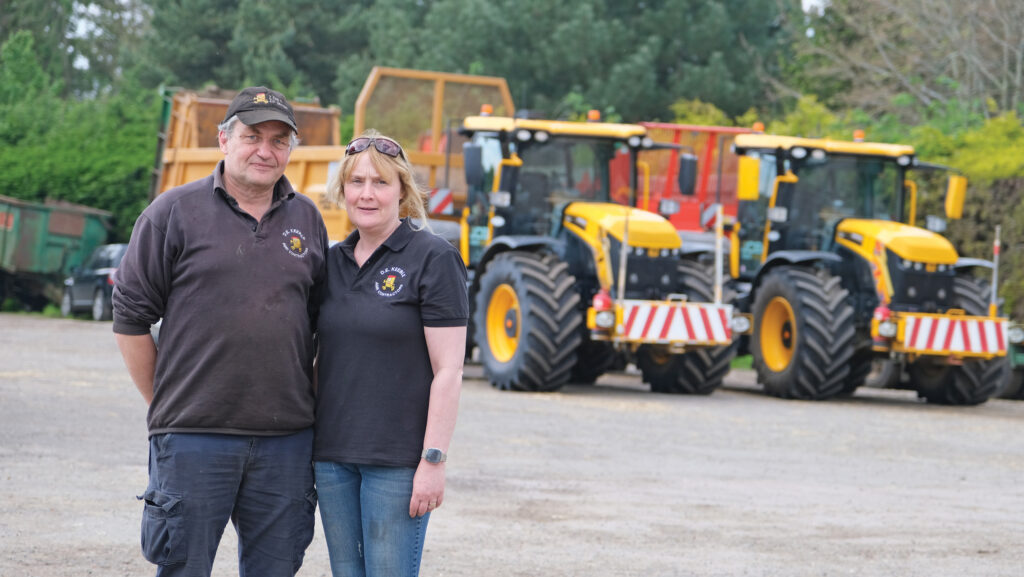
© James Andrews
How did you get into contracting?
Derek’s dad had a small contracting business and pig unit, which Derek joined in 1982.
A hedgecutter was the main powered implement at the time, and they did a lot of manual work cutting riverbanks with a scythe – a job that didn’t appeal to many people.
We’ve stuck to that mentality, focusing on doing a few niche jobs well and avoiding competing with other local contractors.
In fact, we work closely with many of them, particularly with activities that complement ours. This helps us, and them, to tackle larger jobs while controlling costs.
There’s no point spending a fortune on equipment that someone else has already got, just to drive down prices in order to get work. That’s just stupid.
Main contracting enterprises today?
Straw is the biggest part of the business in terms of turnover.
In the summer we bale about 25,000t with our five Hesston [Massey Ferguson] big square balers, which go to a range of outlets.
Three full-size 4×4 MF 2290 machines do the bulk of the work, producing bales for duck units, straw covering carrots and fuelling biomass burners and power stations.
For the latter, we have contracts with three local plants – Sleaford, Snetterton and Ely – and buy straw in the swath by the half-tonne bale.
We don’t like gambling with big sums of money, so working to contracts rather than the open market guarantees a profit margin, even if it isn’t always as big as it could be.
The smaller 4×3 and 3×3 machines – a MF 2270 and 2250 – are mainly kept busy baling straw for six outdoor pig units.
Our other services are designed to fit around the baling. Come the autumn, we’re heading out with our Larrington straw spreaders, which we use for covering overwintered carrots.
Hedgecutting then takes over, with our tractor-mounted Shelbourne Reynolds 8075 VFRT and a home-made 1.2m flail on the 14t Doosan excavator.
This is mainly used for tall, overgrown hedges that are too much for the tractor-mounted machine to handle.
In addition to the flail, we’ve got a saw blade and grab that gets used for more serious height reductions and coppicing.
Muckspreading usually kicks off in mid-February, we move on to verge mowing in late May and then we’re back to the baling in the summer.
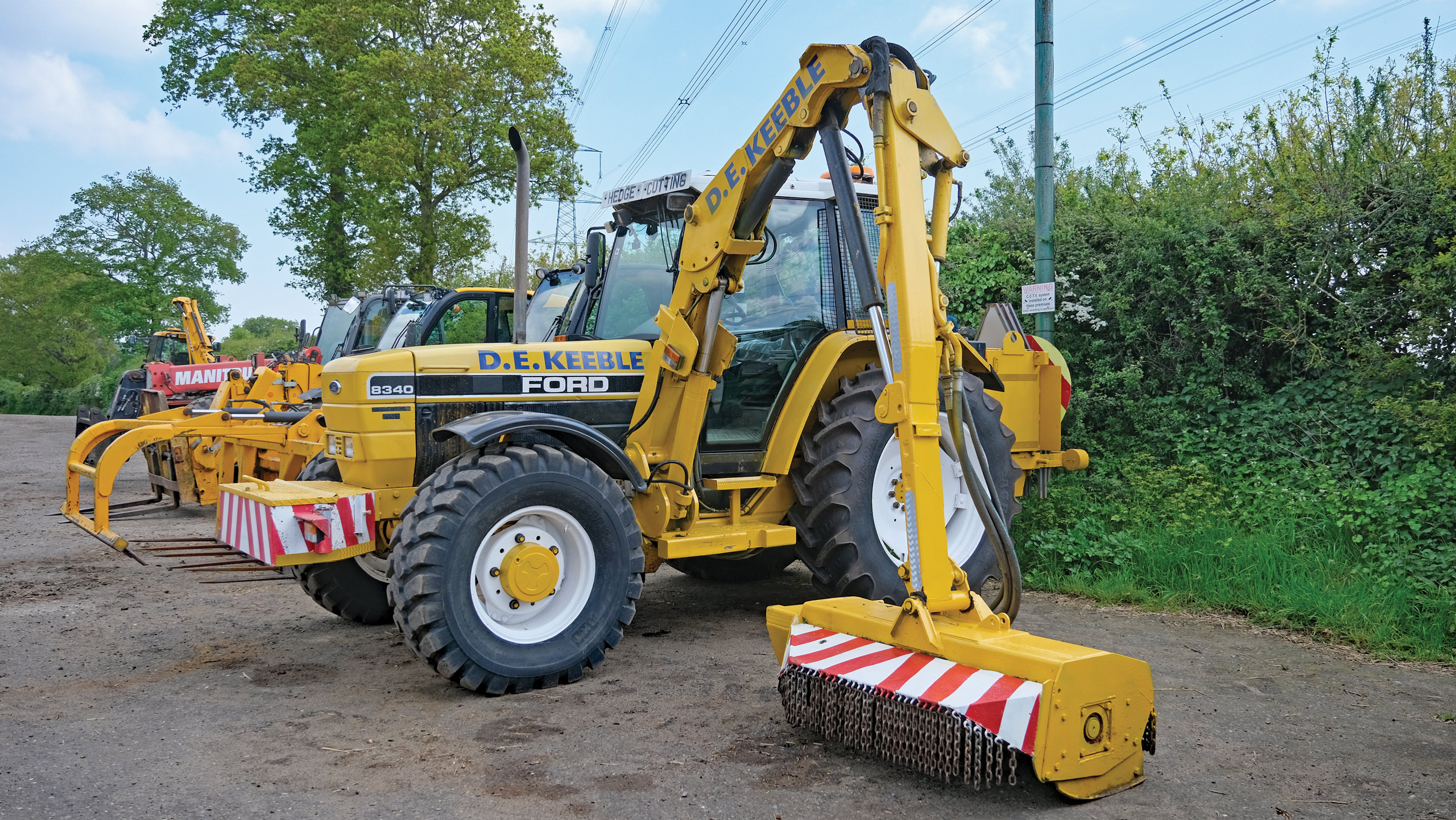
© James Andrews
Any forms of diversification?
The workshop is probably the closest we’ve got to a diversification and has always been instrumental in the success of the business.
We build, modify and repair much of our own machinery, tailoring it to the work we do, as well as working on the kit owned by local contractors we team up with.
In the past, we carried out fabrication work and repairs for various other businesses, but we’ve reined it in of late.
This is because it’s time consuming, we’ve got fewer staff and it’s often difficult to justify the cost to customers looking for a cheap repair.
Fully home-made kit includes our two mid-mount hedgecutters/verge mowers (which were put together in the 1990s), the excavator flail head and saw blade.
We’ve also made various bale grabs and three low-ride, tri-axle straw trailers.
Then there’s the modified stuff, which includes our Larrington straw laying machines with altered drum timing to improve flow, poly cutters, wheel drive and string removers.
Our five Heath Super Chasers have also been adapted so that they accept all three of our bale sizes, we’ve made a bale roller chute for our 2270 baler and done quite a bit of work to our Richard Western FBS16 muckspreader.
This is a conventional twin vertical beater model, to which we added larger paddles to the bottom, lowered the rotors and built a lift-off hood.
It can now spread everything from pig, chicken and cattle muck to dried digestate and LimeX at widths of up to 12m.
This saves us needing another horizontal beater machine with spinning discs that would be sitting idle most of the time.
We also altered the body and mudguards so that it can run on four 710/50 R26.5 tyres.
It’s made a huge difference to the way it travels in the wet, and it’s far easier to pull than our single-axle Ktwo Evo 1600. It is also a very well-built machine though.
Business facts: DE Keeble, Blaxhall, Suffolk
- Main enterprises 25,000t big square baling, straw covering carrots, rear-discharge muckspreading, hedgecutting/coppicing and verge mowing
- Staff Derek and Linda Keeble plus three full-time members of staff, one full-time lorry driver and five seasonal helpers
Most profitable contracting enterprise?
Baling a good crop of straw on a large, level field. When you’re charging by the bale, your ability to cover the ground quickly makes a huge difference to output and profitability.
We work with a loyal group of farmers and we want to give them a fair deal, so we aim to make middle-of-the-road bales rather than light, get-rich-quick or extra-dense ones.
That means our 4x4s tend to weigh about 550kg, 4x3s 450kg and 3x3s 250kg.
As a result, customers can easily see what they’re getting, whether they are a power station or livestock farmer.
At those weights, the bales don’t kill the balers or handling/spreading equipment either.
Having our own lorries has made a massive difference to cash flow coming in from power stations.
When we were relying on them to organise the haulage we could be waiting for ages for collection and the money to arrive, but now we can keep drip feeding it.
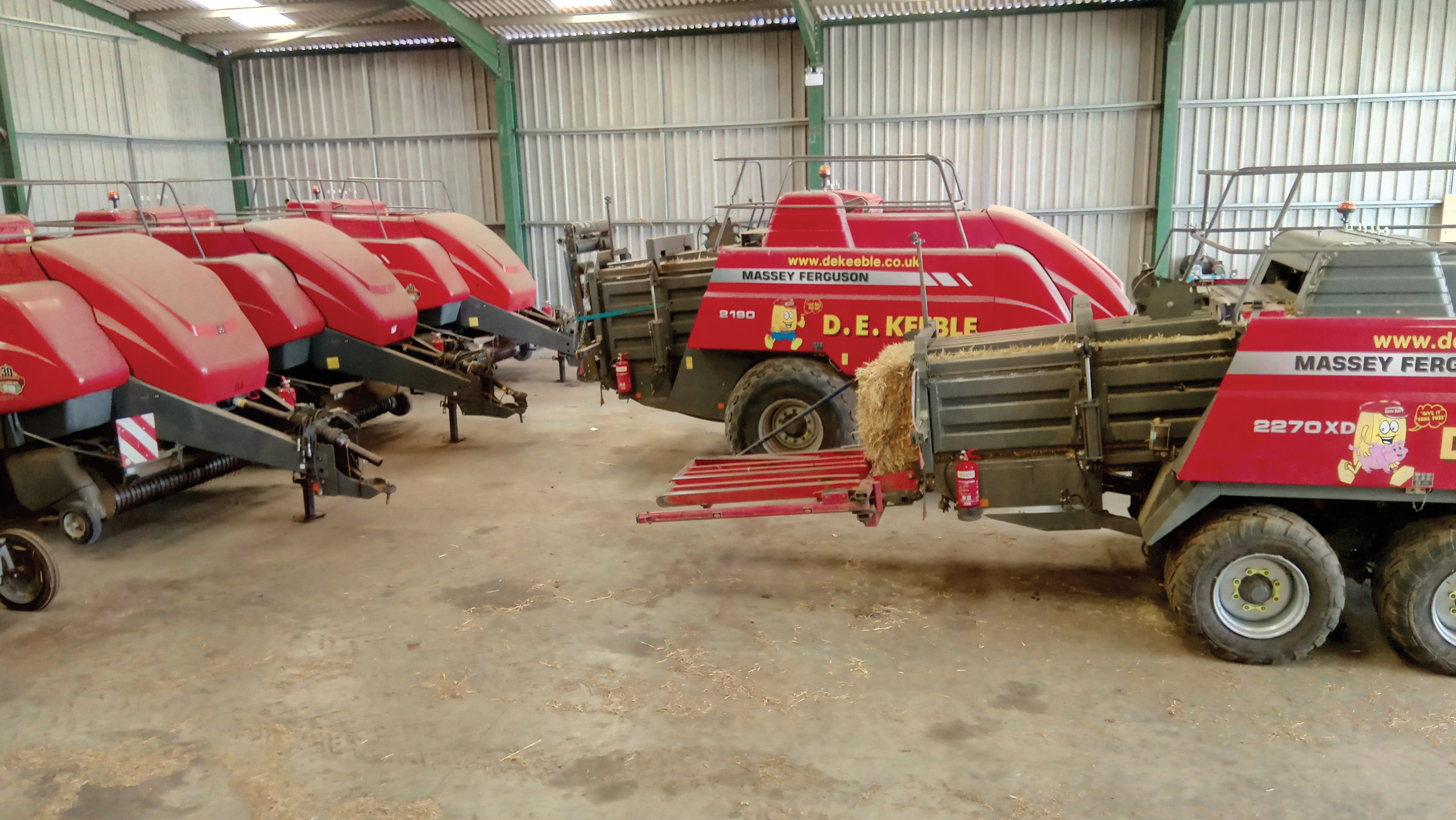
© James Andrews
Least profitable contracting enterprise?
Baling a poor crop of straw on a rough field. Not only does output plummet, but it’s harder on the kit too.
Hedgecutting and muckspreading also operate on some pretty slim margins. They both help spread fixed costs at quieter times of year though, and they make full use of machines and staff.
At £40-£50/hour, we can’t justify using the flashiest tractors for hedgecutting, so our Shelbourne machine is mounted on an early 2000s New Holland TM155.
The hourly cost of running the Fastracs is far too high for this job, so we’d be losing money if we used them. Plus they’re not that well suited to it.
Verge mowing is piecemeal, which is why we still run the mid-mounted mowers on two 1990s New Holland 8340s. That said, even if we did want to upgrade, there isn’t enough room for the trimmers to fit between the wheels on most modern tractors.
When profits are so hard to come by, it’s crucial to be on top of your costs.
We used to just try and work harder to make jobs pay. But when our accountant in the 1990s encouraged us to embrace computerised spreadsheets, we soon realised that doesn’t work long term.
It was a steep learning curve, particularly for a spanner wielder, but the spreadsheets now govern everything we do.
Plus, if we get any mad ideas about running expensive machinery for a poor business proposition, we just need to glance at the 1980s Riecam beet harvester rusting away at the back of the yard. It never properly paid its way.
Biggest threats to your business?
There are plenty of challenges: inflation, the weather and the amount you can charge.
But there’s only one true threat – age. All the others we can work around, but we haven’t yet found a cure for getting older.
We’ve got a great group of staff, but the youngest is 52 and half are now in their 60s.
With a shortage of youngsters coming through to replace them, we’re not sure how things are going to pan out longer term.
We’ve always teamed up with other contractors and farmers to share the workload and we think this is going to become increasingly important in the future.
Difficulties with staff recruitment?
Most farms in the area struggle to recruit staff, which would appear a good opportunity for us to take on extra work.
The only problem is that we can’t find them either. A few years ago, we lost two key staff members – one sadly died and the other retired – and we haven’t been able to replace them, despite repeated efforts.
Rather than struggle trying to find staff to fit the business we had, we took the decision to fit the business around the staff we have got.
For now, this is working out well. All our staff are skilled and experienced, so we can leave them to manage their own workload and don’t have to worry about them doing the job properly.
Getting a contractor in is a bit like getting someone to tile your kitchen floor – most people can do the job themselves, but when they employ a professional, they want to be impressed with the quality of the work.
We simply couldn’t encourage new staff to stick with the job long enough to achieve this, so it was always at the back of our minds when sending them onto other people’s farms.
What excites you about the season ahead?
For the first time in a while, it looks like there could be decent demand for straw.
After last harvest, prices were well below the cost of production, but stocks are now low and the wet weather means demand will be much higher.
We’ve already been contracted by one of the power plants which is a promising start.
Any new machines?
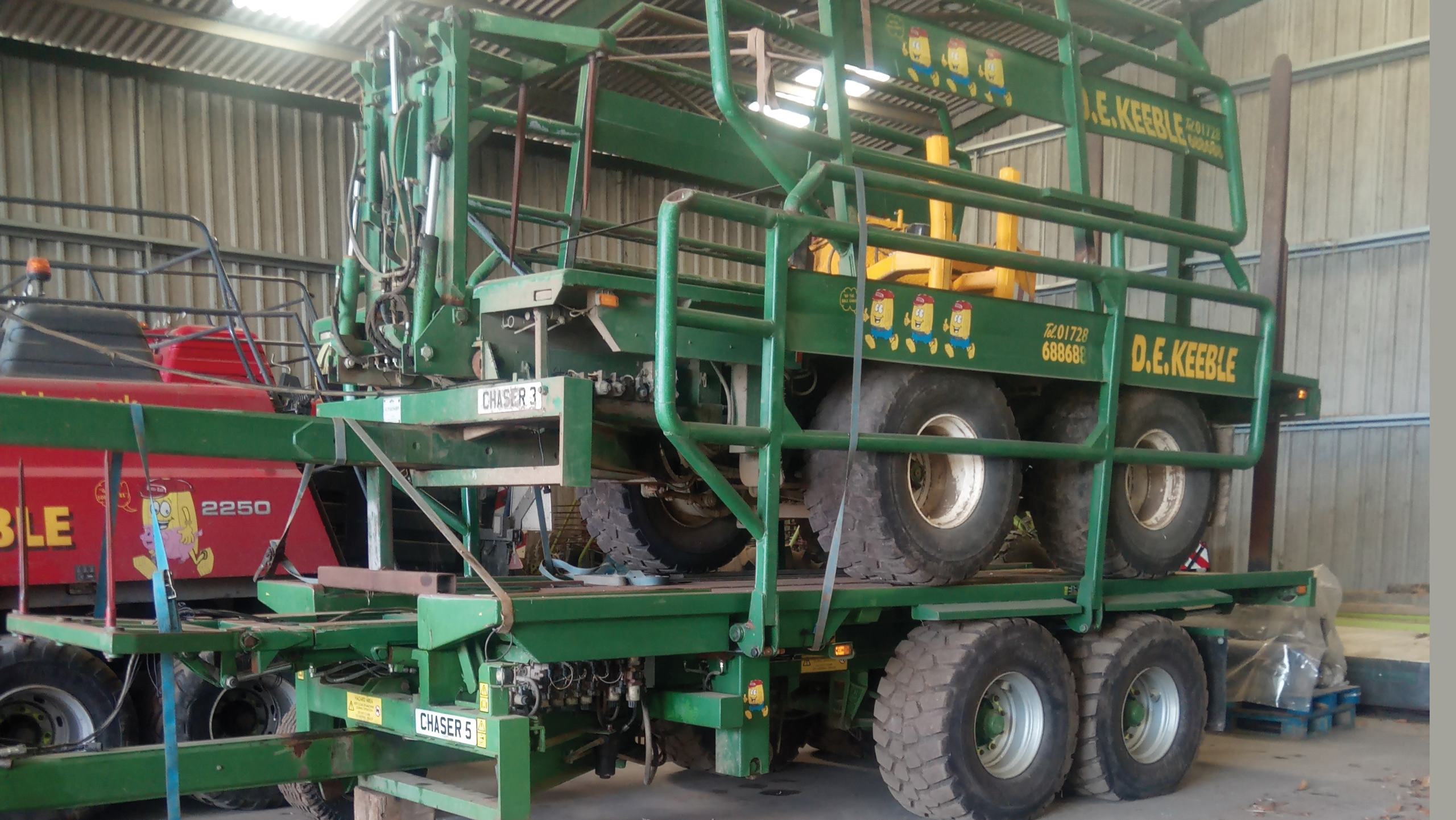
© James Andrews
Our policy has long been to buy two or three new Fastracs at the start of the baling season and sell the old ones at the end.
This means we double up the number of tractors during our busy baling period, avoiding the need to hire as many in.
During their two seasons with us, each tractor saves about £20,000 in hire costs, which has historically been most of the cost to change. In theory, that means they cost us very little to run during the quieter months.
We did this last year, upgrading two of the previous generation Fastracs to iCON models.
These have fancier controls in the cab, but they’re also about £25,000 more expensive which has messed with our system somewhat.
This time around we’ve been unable to do a deal that makes financial sense, so we’ll be hiring all the extra tractors we need for the first time in a long while.
We love the 4220s and they’ve been great. We buy them for the comfort rather than the speed and we’ve had few serious problems. The fact we only keep them for just over a year – 1,500 hours – does help with that though.
As for the new iCON models, they’re nice to drive, but it takes aeons for the software to boot up when you start the engine.
To save that, we end up idling them all day, clocking hours, burning unnecessary fuel and eating away at our profit margin.
They also seem to have perpetual software niggles so the dealer is constantly out with the laptop performing updates.
Recent major repairs/breakdowns?
The biggest recently was when the pin broke in one of the roller bearings on our 2018-built 2290 baler, causing the plunger to drop down and smash to bits.
Apparently it’s a common fault on this model year, but we couldn’t get any help from Massey Ferguson and the insurance company didn’t want to know either.
We were faced with a bill of more than £20,000 for a new one, so we made our own in the workshop instead.
This cost a fraction of the price, runs much better and is far stronger, so it shouldn’t go again.
Overwinter projects?
When Derek started out, his first tractor was a Massey Ferguson 135. That was sold years ago, but he had an opportunity to buy another last year and thought it would be a fun “pet” project.
It was a bit on the rough side, so it’s been in the workshop during the winter to have the bodywork patched up and be treated to a few mechanical repairs.
These included rebuilding the injection pump, replacing the back axle seals and fitting new front axle pivot bushes.
Current contractor frustrations?
Some people say the opportunities have gone out of farming and contracting, but we don’t think that’s the case.
We’ve got no shortage of ideas for new ventures, but sadly the large investment in equipment and finding enough staff time often makes the gamble too great.
Added to that, when we have wanted to buy anything recently, it’s been very difficult to get deals over the line.
With machinery sales the way they are, you’d think dealers would be biting your hand off, but perhaps it’s to do with them not wanting the trade-in.
Something needs to change soon, as the whole system seems to be broken at the moment.
Kit list
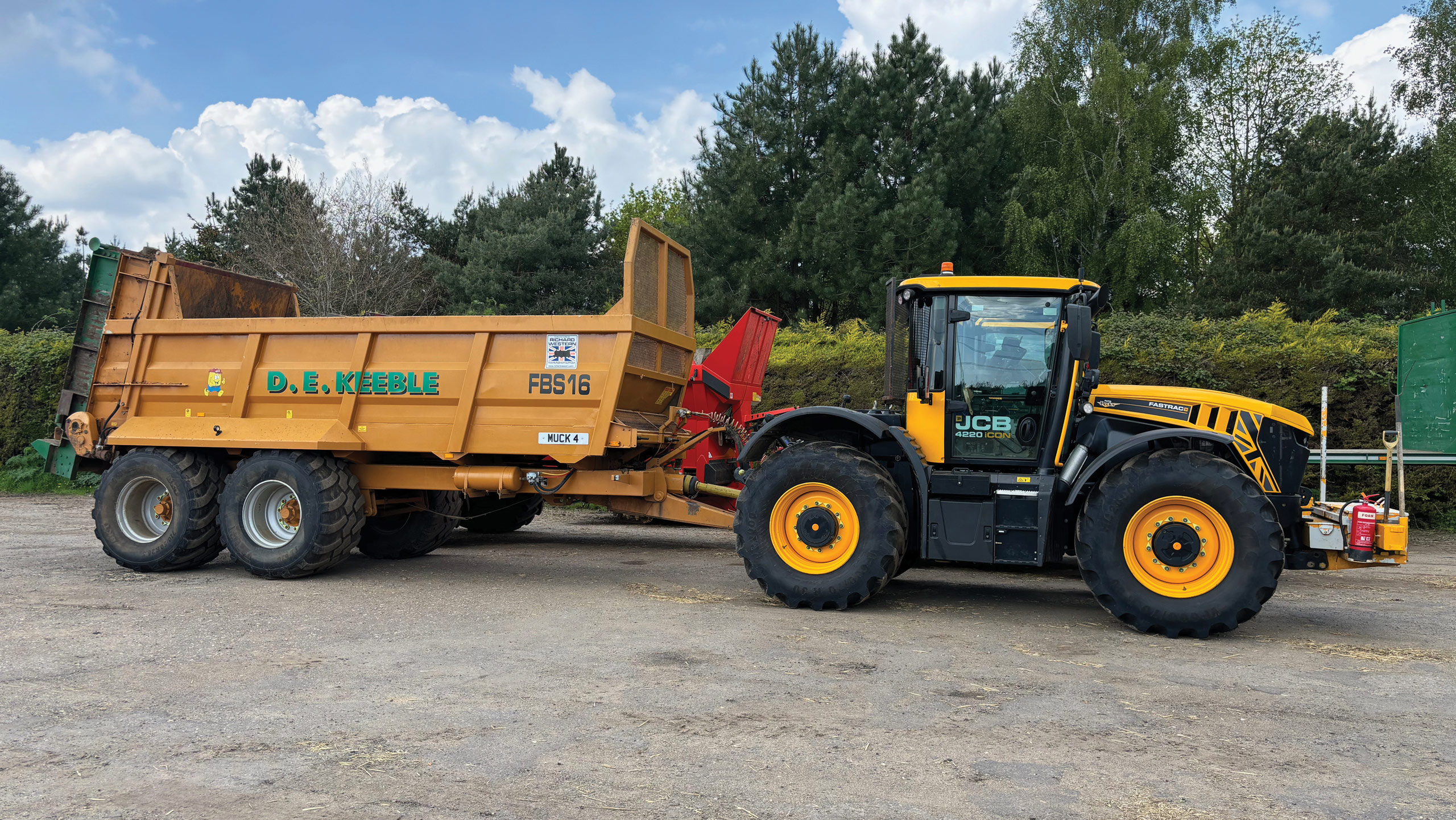
© James Andrews
- Tractors JCB Fastrac 4220 iCON x 2, JCB Fastrac 4220, New Holland TM155 and 8340 x2, Massey Ferguson 135
- Balers Massey Ferguson 2290 x3, 2270 XD and 2250
- Straw spreading Modified Larrington straw spreaders x2
- Muckspreaders Modified Richard Western FBS16 and Ktwo Evo 1600
- Hedgecutters Home-made excavator flail hedgecutter and saw blade with grab, home-made mid-mount verge cutter x2, Shelbourne Reynolds 8075 VFRT
- Telehandlers JCB Loadall 535-95, 541-70 x2, 542-70, Caterpillar TH62, Manitou MLA 628 120 LSU and Bobcat skid-steer
- Other kit Claas mower conditioner, Volto tedder x2, Liner single-rotor rake x2, Doosan 14t zero tail swing excavator, DAF lorry and drag and DAF artic with long semi trailer

